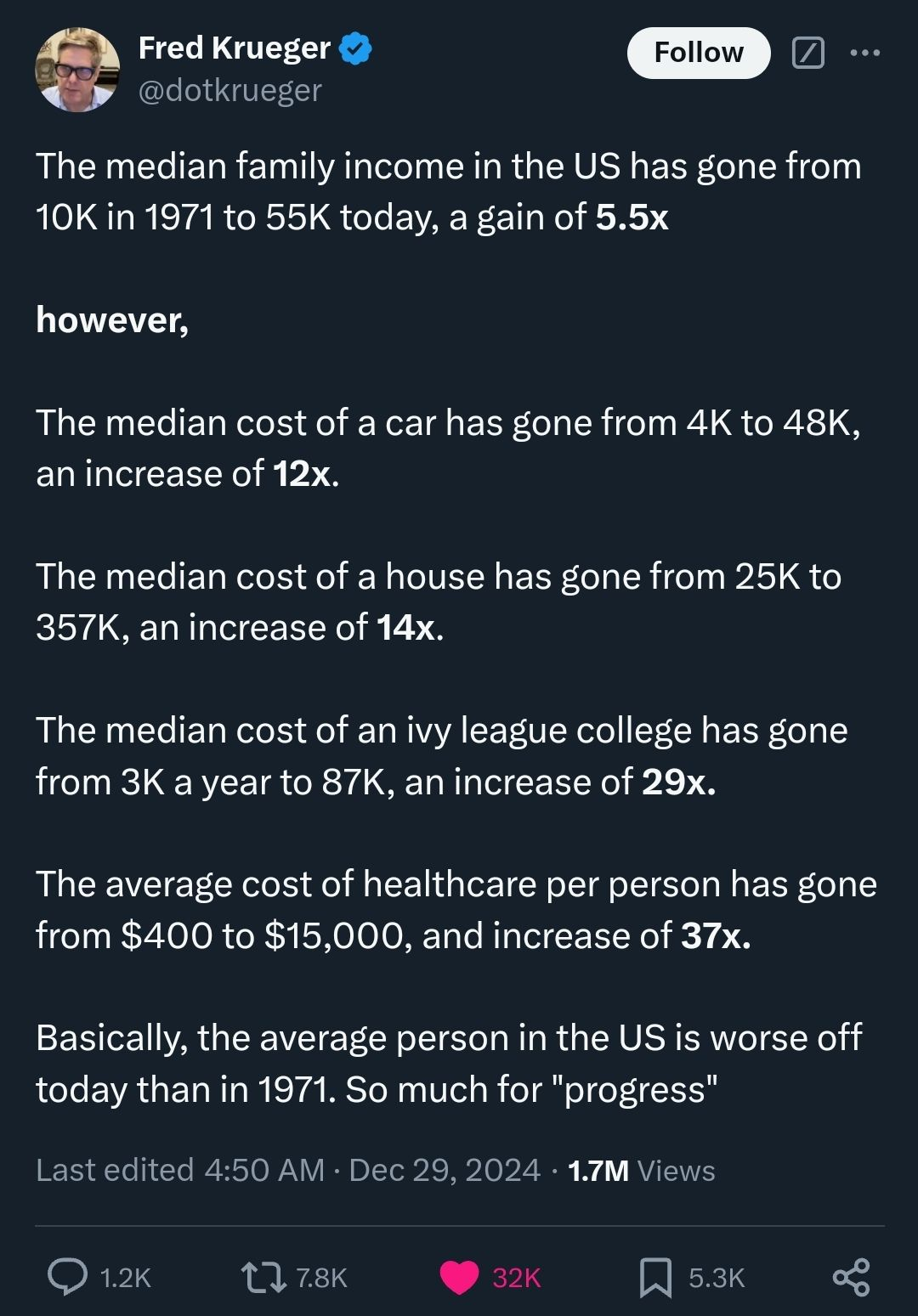this post was submitted on 30 Dec 2024
1469 points (98.7% liked)
Microblog Memes
6125 readers
3016 users here now
A place to share screenshots of Microblog posts, whether from Mastodon, tumblr, ~~Twitter~~ X, KBin, Threads or elsewhere.
Created as an evolution of White People Twitter and other tweet-capture subreddits.
Rules:
- Please put at least one word relevant to the post in the post title.
- Be nice.
- No advertising, brand promotion or guerilla marketing.
- Posters are encouraged to link to the toot or tweet etc in the description of posts.
Related communities:
founded 2 years ago
MODERATORS
you are viewing a single comment's thread
view the rest of the comments
view the rest of the comments

Administration and enforcement are WAY higher when giving something to 100 million people than when giving it to 1 million.
At least where I live calculating someone's income is trivial. Government have that data. With GMI 1 million people would need to say to the government that they want the money in a particular bank account, and the government would need to deal with ensure that petitions are legit. With UBI that work gets multiplied by a hundred or more. Suddenly the government has to control that the money is going to the proper bank accounts. And has to deal with WAY more fringe cases (recently deceased, minors, double identities, etc). There's no case for UBI being easier to manage.
As for the rest the problem is the same between UBI and GMI if you think it through. UBI would need an humongous budget. Where that money will come from? Two options, printed or taxes.
Printed is out of the question, hyper-inflation would be for the history books. Taxes would mean that most people end up loosing as much as they are gaining. And at the end you end with the same dilemma people who after taxes get the money and people who not. Just that it gets decided by tax brackets.
And the fundamental issue is the same. Giving that the basic income is actually what's needed for a living... That would be pretty similar to the most common income for a job. As that's how economy work. Money is just an exchange for people's work. So the most common salary is more likely to be very similar to the amount of work needed for sustaining a population divided between the working population. I don't see it working on the proposed way, of UBI being a livable wage and the minimum salary being able to add another livable wage on top of that. I don't see how that would even be possible. Most likely on that scenario UBI+minimum wage ends up becoming what's needed to actually live good. And UBI alone becomes unlivable, making people who depended on that poor again.
Not that GMI solves many issues. Just simpler to get a pretty similar outcome.
Still I think both are bad approaches. Because they make it possible to some people to live without working(people that can work), out of others work. That will always make frictions.
My approach would be just for the government to give jobs instead of money, guarantee jobs with livable income. Or if not all that much work is required for society, then lowering the working hours from 40 to less until all working population could share the load. I don't buy a society where some people work and others don't (that's why I don't like capitalism). I prefer societies where everyone who can work do actually work until society needs are filled.
We already have social security numbers, and the IRS...
It's already like that, there are people who only go to work because they have to, and while there do as little as they can get away with. UBI would end the pretense, get them out of the way.